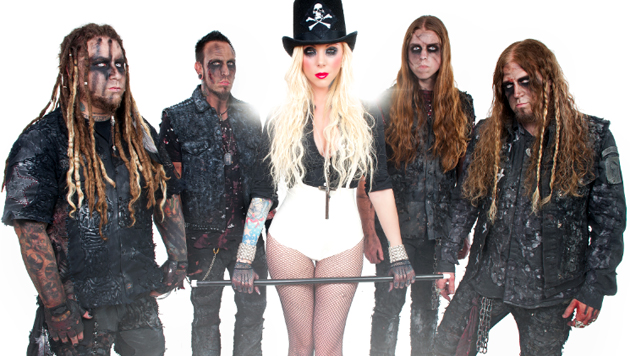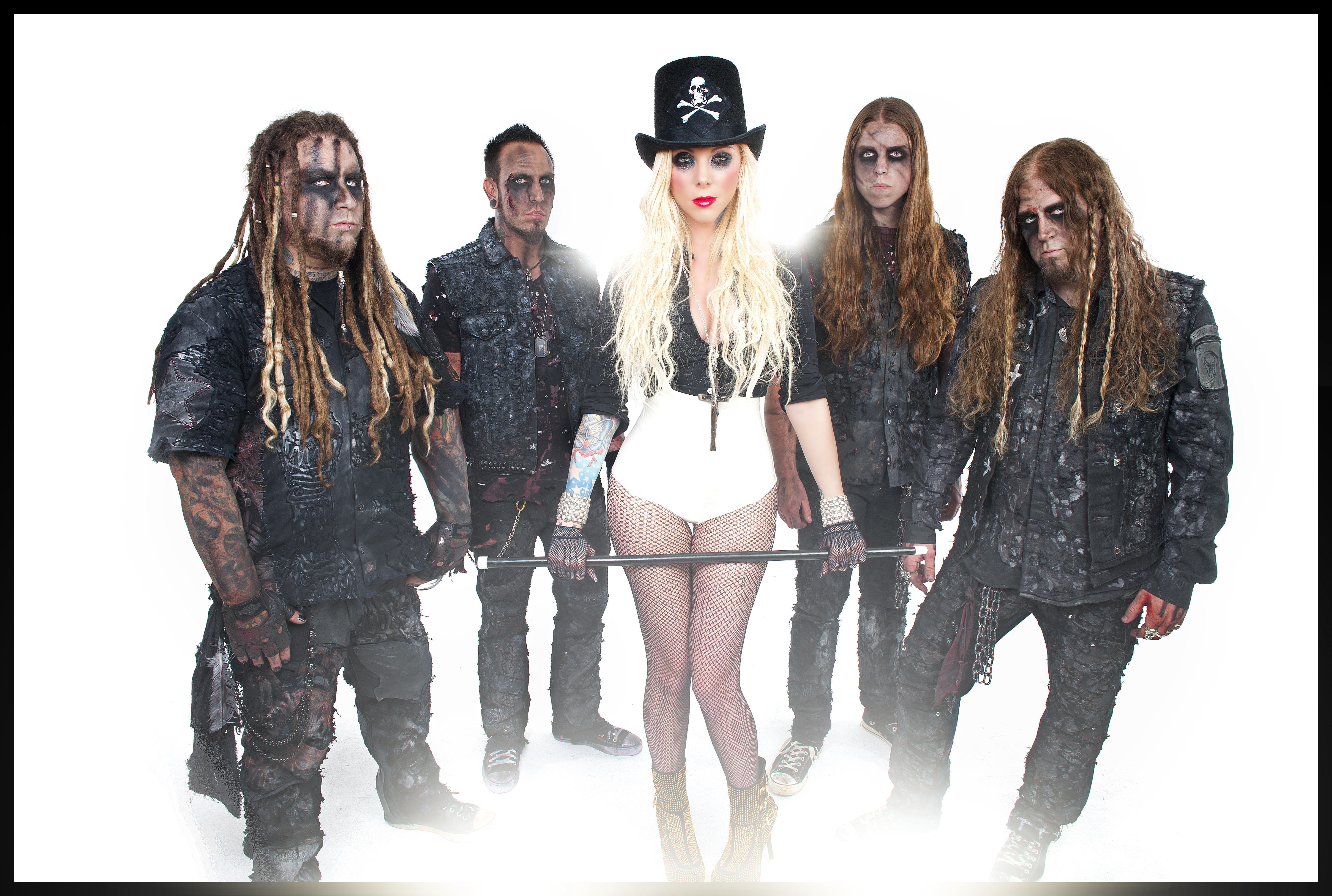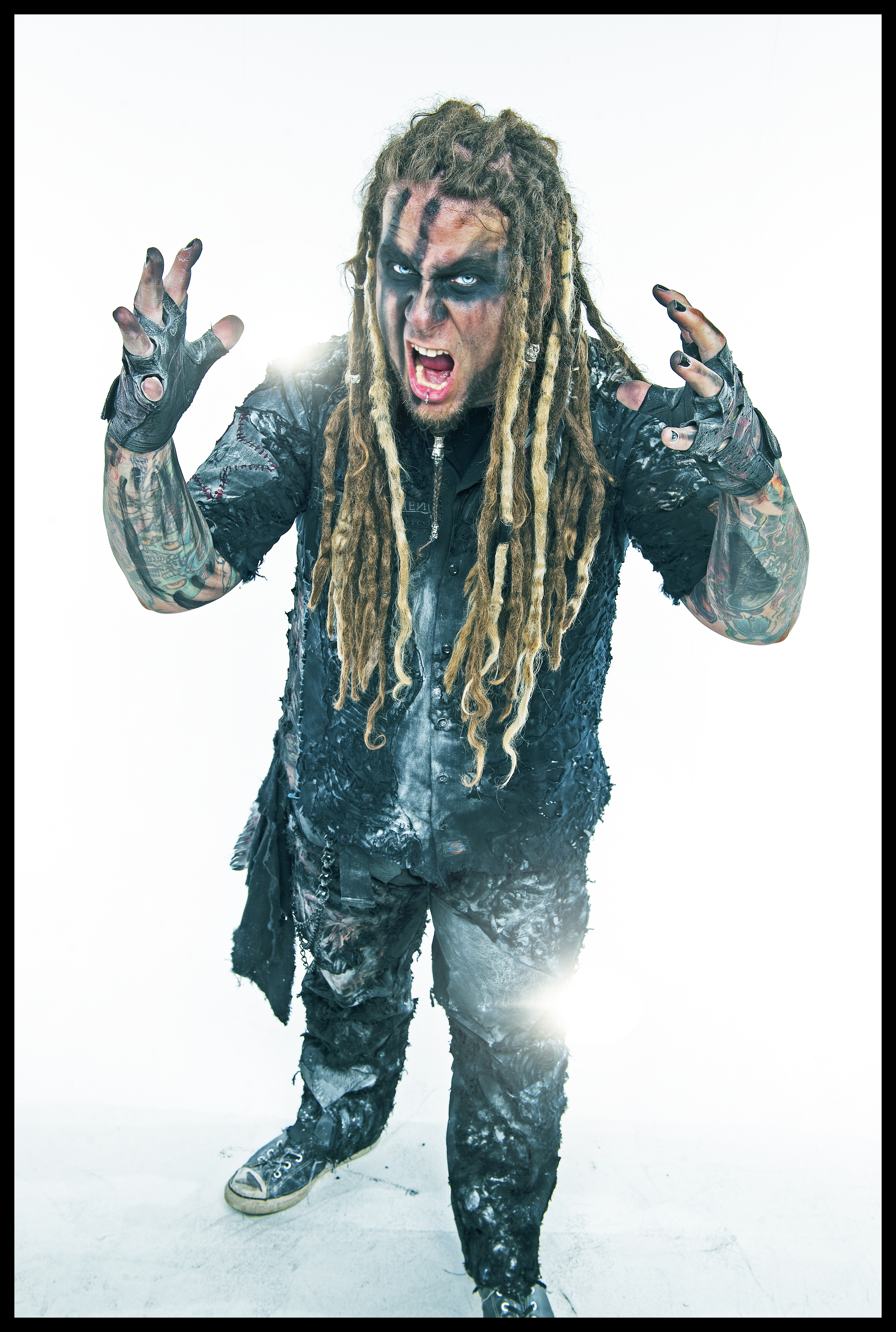Interview: Chris Howorth of In This Moment on the Making of 'Blood'
All the latest guitar news, interviews, lessons, reviews, deals and more, direct to your inbox!
You are now subscribed
Your newsletter sign-up was successful

Six years into the history of In This Moment, founding members Maria Brink and Chris Howorth were at a crossroad: The vocalist and lead guitarist were now a duo, contemplating the band’s future while preparing to write and record what would become their new album, Blood.
Tracking with producer Kevin Churko in late 2011 and early 2012 at The Hideout Studio in Las Vegas, Brink and Howorth worked diligently, and at their own pace, to create a powerful record that Brink says brings out the “alluring, darker, sinful side of us that no one has ever seen.”
In This Moment, which includes bassist Travis Johnson, guitarist Randy Weitzel and drummer Tom Hane, will once again commence touring, in March, in support of Blood. With that series of dates on the horizon, Howorth discussed the creative process.
GUITAR WORLD: When did you begin writing the songs for this album?
We started working on it around November 2011. Even before we lost the band members, Maria and I were working on songs. We went in the studio with Kevin at that time for a week and a half to get a couple of songs done. We felt like we needed to show everybody that we’re better than ever.
Kevin is a huge supporter of In This Moment. He believes in our band and we believe in him, so we went down and did the two songs and it was amazing. It kind of set the tone for the whole album. It’s better than any process we’ve had before. Maria, Kevin and I recorded the album. Kevin is a drummer and multi-talented musician and can play all instruments. I play all the guitars, he and I created the beats, Maria does the vocals. Travis was there in a supportive role, helping out. That’s why everything is so fresh and different, because it’s just the three of us.
How does the writing process work?
All the latest guitar news, interviews, lessons, reviews, deals and more, direct to your inbox!
What we’ve always done is, if someone had a good idea for a guitar riff or something, and Maria came up with a vocal melody over it with no lyrics, and we had that one little piece, everyone would contribute ideas and expand on it. That’s how we do it still; we’ll play it for Kevin and he’ll make suggestions. It’s really organic.
We brought in a couple of things we had, like a verse or a chorus or a pre-chorus that stayed, but a lot of times we built something new. It’s very organic and artistic, like drawing a picture and trying something and erasing and trying something else. I think these songs are the most focused we’ve ever had. We have a lot to prove, and we want to show any doubters that they were wrong to give up on us. This is the best we could ever do and that’s how we’ve approached every song.
Are you able to write while you’re on tour?
We were on the road for over a year and we don’t like to write on the road. Maria always wants to do it, but I feel like it’s very distracting. I don’t enjoy it as much.
How did that year on the road prepare you to make another record?
It kind of always does. Once you make a record, you go on tour and you promote it. There’s always that time when you feel things are going good, but they’re starting to level off and you know in your heart that it’s time to do another one. Different experiences, different bands you play with, different situations will influence your songs.
On our first album [Beautiful Tragedy], we toured with Ozzy and we’d never done anything like that. It was a jump from a van to a tour bus to an arena. Our second album [The Dream] was more melodic and song-oriented because we were so inspired and wanted to be in arenas. Our last tour, the All-Stars tour, was a young scene, a metal tour that was more focused on heavy breakdowns and people moshing, and we felt like we didn’t fit. It pushed us more into making our own path and not worrying about moshing as much as making a great song, so it always has an influence on the album.
What are some of the goals you set for yourselves with this album?
Maria and I created this from the ground up. We have a lot of fans who have a lot of different expectations and things they like about us. We have two different sides because we’re a very diverse band. We have people that love the melodic side and people that love the heavy side. We’ve developed a sound that’s In This Moment and doesn’t sound like any other band.
We want to make sure that we always have that, and that we always have the heavy elements mixed in with the melodic elements in a way that will please everyone’s ears, including ours. We always base it off of what we want to hear, but at the same time we want the fans to like our stuff and not feel betrayed by our albums. So that’s always the goal: to be original, artistic and have the elements that people want to hear from In This Moment, and make ourselves happy in the process.
Read more of Chris Howorth’s interview right here.
Photo: Kevin Estrada— Alison RichterAlison Richter interviews artists, producers, engineers and other music industry professionals for print and online publications. Read more of her interviews right here.




Alison Richter is a seasoned journalist who interviews musicians, producers, engineers, and other industry professionals, and covers mental health issues for GuitarWorld.com. Writing credits include a wide range of publications, including GuitarWorld.com, MusicRadar.com, Bass Player, TNAG Connoisseur, Reverb, Music Industry News, Acoustic, Drummer, Guitar.com, Gearphoria, She Shreds, Guitar Girl, and Collectible Guitar.
